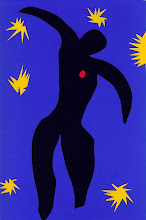Scenario: A genuine insight is generated. It is communicated with care. Where the concept is new, difficult, hard to grasp - a different version of it is generated by the new listeners. They (unknowingly) remove or distort the new truth, so that it makes clear sense to them in the way things are already known. The changed and simplified insight is then promulgated to like-minds with that question. The satisfaction of removing the tension of the question generates its own momentum. The distorted truth is then self-affirming. The insight itself, becomes the cause of the reason for its origination. The problem solved is reflected back as the problem's own response to the answer offered, affirming the problem, while hiding it further. The work created, self defeats. What we then discover is consciousness has, the consciousness it has. What we find, is we don't know enough, about how it is we come to knowing.
If I had to name this phenomenon, I'd call it the 'Karmic Loop of the Creative Originator'. There are many of examples of this. The provocative anti-culture artist who's work becomes fashionable in the group that it satirises. The innovative researcher who publishes early, only to have their work discredited, using the methodology they are trying to change. The politician making new policy, who finds its easier to agree with the people's hearing of the need, ends up getting a policy opposite to its originating intention. We see this in the media daily, catching ourselves in the act. Good truths are distorted in their communication and promulgation. The 100th Monkey research re-frame, the IPCC glacial retreat error, the comprehensive selectivity in Integral Theory, are all great examples ... the list goes on.
I remember reading a reflection by education researcher, Howard Gardner, explaining that he spent the first ten years of his work getting the idea of multiple intelligences into the education community, and the next ten trying to remove the distortions of the idea from that same community (1999, p.79). So the question is: Is that ten years wasted, twenty years or all of the preceding years of work? Or perhaps ... this is all good - and humanity is simply doing what it does with thought. Distorting it while finding its own clarity.
In recent teachings on Karma, (the Buddhist law of cause and effect) the complexity of the states and processes of mind involved was partially disclosed to me. I won't attempt to recite the principles seen with my limited understanding. To do so would only evidence the law proposed. That fault is waiting. This, after all, is a compassionate depiction of the entire system of all human (and non-human) thought across all times. It is stated, however, that there are different (future) environmental effects of each of the Ten Non-Virtuous Actions. For false speech, including claiming a knowledge one does not have experience of, one may find oneself living in environments of deception, where cooperation in work fails and there is no-one to trust.
And perhaps that is the simple learning ....
In the moment of promulgation of a partial truth (as I have just done), even with good intention, of something we don't quite understand, we may be diminishing the capacity of our community of knowing, to forever know.





No comments:
Post a Comment